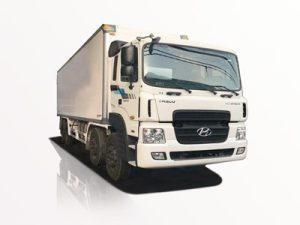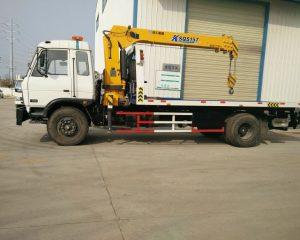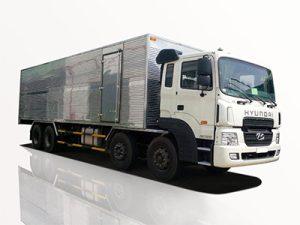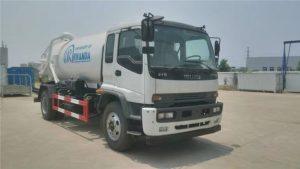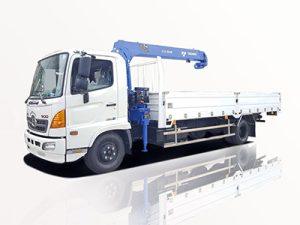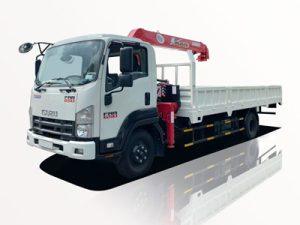Monday to Saturday - 8:00 -17:30
Garbage Truck Waste Management: An In-Depth Guide
Garbage truck waste management is a critical component of urban infrastructure and public health. With increasing populations and waste generation, understanding the mechanisms behind waste collection and management is essential for maintaining clean and sustainable environments. This article will explore the processes, technologies, challenges, and innovative solutions in garbage truck waste management. We’ll also provide practical tips and real-world examples to improve waste management practices in your community.
Understanding Waste Management
What is Waste Management?
Waste management refers to the collection, transportation, processing, and disposal of waste materials. It encompasses a wide range of activities aimed at reducing the adverse effects of waste on human health and the environment.
The Role of Garbage Trucks in Waste Management
Garbage trucks are specialized vehicles designed to collect waste from residential and commercial areas. These trucks play a pivotal role in the waste management cycle by ensuring that refuse is gathered efficiently and transported to appropriate disposal sites.
The Types of Waste Collected by Garbage Trucks
Municipal Solid Waste (MSW)
| Type of Waste | Description |
|---|---|
| Compostable Waste | Food scraps, yard waste |
| Recyclable Materials | Plastics, glass, paper, metals |
| Bulky Items | Furniture, appliances |
| Hazardous Waste | Pesticides, batteries, chemicals |
Commercial Waste
Commercial waste includes refuse generated by businesses, factories, and other commercial establishments. This waste often includes packaging materials, manufacturing by-products, and office waste.
How Garbage Trucks Work
The Collection Process
The waste collection process begins with a planned route that garbage trucks follow to pick up waste from designated locations. These routes are often optimized using GPS technology to enhance efficiency.
Types of Garbage Trucks
- Rear Loaders: Commonly used for residential waste collection, these trucks have a manual loading mechanism. Workers throw waste into the back of the truck.
- Side Loaders: These trucks can autonomously collect waste from containers positioned at the curb. They often have robotic arms for efficiency.
- Front Loaders: Typically used for commercial waste, these trucks can lift bins from the front and dump them into the truck.
Challenges in Garbage Truck Waste Management
Logistics and Traffic
Garbage trucks often operate in congested urban areas, leading to delays in waste collection. Efficient routing and scheduling are essential to mitigate these challenges.
Public Health Concerns
Improper waste management can lead to health risks, including the spread of diseases. Ensuring timely and proper waste collection is vital for community health.
Environmental Impact
Landfills contribute to greenhouse gas emissions and can harm local ecosystems. Effective waste management practices must prioritize reducing landfill dependence through recycling and composting.
Innovations in Garbage Truck Waste Management
Smart Waste Management Systems
The integration of technology in waste management is transforming how garbage is collected and processed. Smart sensors in waste bins can alert waste management companies when bins need emptying, improving efficiency.
Electric and Alternative Fuel Trucks
Many cities are transitioning to electric or alternative fuel garbage trucks to reduce emissions and improve fuel efficiency. These trucks not only lower carbon footprints but also contribute to quieter neighborhoods.
Best Practices for Effective Waste Management
Community Engagement
Communities should be actively engaged in waste management practices. Education campaigns can promote recycling and proper waste disposal, fostering a culture of responsibility.
Regular Maintenance of Garbage Trucks
Regular maintenance of garbage trucks ensures they operate efficiently and safely. Routine inspections can help identify potential issues before they lead to costly repairs or operational downtime.
Practical Tips for Residents
- Separate Waste: Sort your waste into recyclables, compostables, and landfill. Use color-coded bins to make this easier.
- Reduce Food Waste: Plan meals and use leftovers creatively to reduce the amount of waste generated.
- Participate in Community Clean-Ups: Join local efforts to clean up parks and streets, fostering community spirit and responsibility.
Case Studies: Cities Leading in Waste Management
San Francisco, California
San Francisco has implemented a zero-waste goal, aiming to divert 100% of waste from landfills. The city has established extensive recycling and composting programs, earning recognition for its innovative waste management practices.
Sweden
Sweden’s waste management system is known for its efficiency; the country recycles nearly 99% of its waste. Innovative strategies like waste-to-energy conversion and comprehensive recycling programs have placed Sweden at the forefront of waste management globally.
Frequently Asked Questions (FAQ)
What are the main responsibilities of garbage truck operators?
Garbage truck operators are responsible for collecting waste on assigned routes, ensuring proper disposal, maintaining the vehicle, and adhering to safety regulations.
How does recycling affect waste management?
Recycling reduces the amount of waste sent to landfills, conserves natural resources, and lowers greenhouse gas emissions. It is a crucial component of sustainable waste management.
Can I compost at home?
Yes, composting at home is an excellent way to reduce waste. You can compost vegetable scraps, coffee grounds, and yard waste, turning them into rich soil for gardening.
What technology is changing garbage truck waste management?
Smart technology, including IoT sensors and GPS for route optimization, is changing garbage truck waste management by enhancing efficiency and reducing costs.
How can cities improve waste collection efficiency?
Cities can improve waste collection efficiency by adopting technology, engaging communities, and optimizing routes to reduce travel time and costs.
What impact does garbage truck waste management have on public health?
Efficient garbage truck waste management minimizes odor and pests, reduces disease transmission, and ensures a cleaner environment, thereby improving overall public health.


